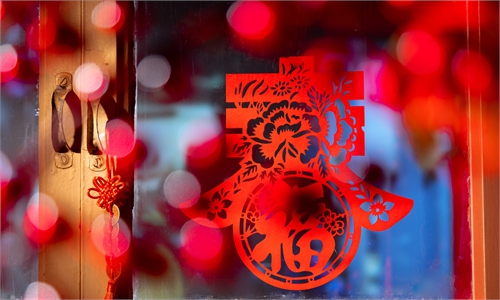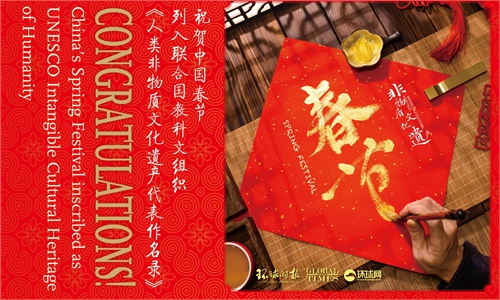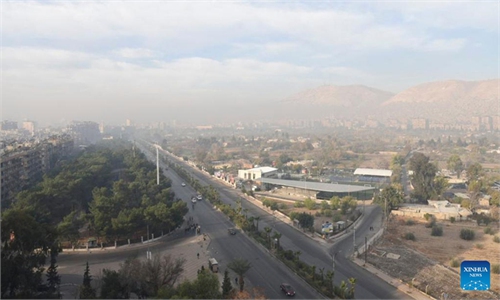Projections indicated that by 2030, three of the four largest economies in the world will be in the Global South, led by China, India and Indonesia, which can significantly alter the balance of power and influence in the near future.
ON Nov 13 to 15, 2024, I had the privilege of joining more than 100 international think tanks at the Second Global South Think Tanks Dialogue themed “Global South: Equality, Openness and Cooperation” held in Nanjing, China.
It was co-organised by the International Department of the Communist Party of China (CPC) Central Committee, CPC Jiangsu Provincial Committee and China Council for BRICS Think-tank Corp.
The dialogue was attended by more than 100 distinguished scholars, researchers, panellists and participants coming from five continents, whereby individual country’s representatives presented their views in four parallel plenary sessions.
The themes of the sessions were “Addressing Challenges Together to Safeguard Peace and Security”, “Pursuing Open Development to Build Synergy for Development, “Upholding Fairness and Justice to Improve Global Governance” and “Deepening Mutual Learning Among Civilisations for Common Progress”.
The dialogue in Nanjing concluded with the establishment of The Global South Think Tanks Alliance, co-founded by the Chinese Academy of Social Sciences, China Media Group, Tsinghua University, Fudan University, Renmin University of China, and more than 200 domestic and international think tanks and universities.
The alliance is committed towards promoting mutual understanding and learning, as well as sharing of knowledge and resources amongst the Global South countries toward building a better world.
It involves collaborating to conduct joint-research on common subjects, issues and challenges in the pursuit of modernisation process, while preserving the civilisation and interests of different ethnic groups.
In building the foundation of the Global South cooperation, the Think Tanks Alliance will enhance policy communication flows among the Global South, forging consensus building and engaging consultations, as well as promoting cultural and people-to-people exchanges and cooperation.
The Global South includes Africa, Latin America and the Caribbean, Asia (excluding Israel), and Oceania (excluding Australia and New Zealand).
Regardless of multiple definitions, the Global South is a formidable entity.
Projections indicated that by 2030, three of the four largest economies in the world will be in the Global South, led by China, India and Indonesia, which can significantly alter the balance of power and influence in the near future.
With the global power balance shifting from bipolarity to multipolarity order, the rise of the Global South plays a pivotal role in the global economy, international relations and the formation of a multipolar order.
Since 1990s, the economies of the Global South have consistently outpaced the gross domestic product (GDP) growth of the Global North.
Notably, Global South economies make up 85% of the world’s population and their contributions to global GDP has expanded rapidly from 19% in 1990 to 42% in 2022.
The Global South lower and middle-income countries are experiencing a “youth bulge” and can reap a demographic dividend if their economies grow and income levels improve.
The young adults have a median age of almost 25, which is younger than the global average of 30.
Many countries in the Global South are endowed with abundant natural resources such as fossil fuels, minerals and agricultural products, while some countries have high production in lithium, nickel, cobalt, manganese and graphite that are required for the global green energy transition.
Setting mostly natural resource-rich South countries on a path of sustainable and inclusive growth will depend on their continued investments in education, healthcare, human and physical capital, and building up institutions, as well as seeking technical and resources support from the international institutions.
Greater efforts are needed to expand access to better education and learning outcomes in enhancing the people skills and improve employability.
Global South countries must implement pragmatic policies and impactful socio-economic programmes to support the pace of economic growth that will create better income employment, improve living standards, reduce the level of poverty, and help to narrow the growth divergence between the developed and less developed countries.
Governments need to enhance the investment climate, making business environment more friendly and conducive, as well as de-risk their economies to attract and boost both domestic and foreign investment.
What roles can the developed South countries play?
Developed countries should help developing and underdeveloped countries to expand their economies through policy advice, capacity-building activities, and concessional financial and resources support.
Assistance should be targeted at enhancing national trade policies and regulations, developing infrastructure, and building technology capacity, digitalisation, new knowledge and manpower development.
> SEE NEXT PAGE
China’s Belt and Road Initiative represents a key pillar of the global community’s shared future, promoting higher- quality development through the financing of public infrastructure and transportation projects to improve connectivity, facilitate trade and people-people movement, and opening up and sharing China’s development opportunities with the rest of the world.
China International Import Expo, which has been running for eight consecutive years, provides strong evidence of China’s commitment to opening up to the world.
China also offers certain socio-economic initiatives as part of its Shanghai Cooperation Organisation’s outreach.
The availability of financing at reasonable terms for the development of Global South countries is essential.
These include innovative financing solutions and new funding sources, as well as currency swaps.
China has emerged as the new major financier of the Global South economies.
The New Development Bank (NDB), formerly referred to as the BRICS Development Bank, is a multilateral development bank established by the BRICS states (Brazil, Russia, India, China and South Africa).
The NBD will support public or private projects through loans, guarantees, equity participation and other financial instruments.
Additionally, Global South countries are encouraged to use their local currencies for the settlement of trade among member states.
While the deepening of economic and financial integration via cross-border trade and financial flows can help the Global South countries to integrate into the world economy, the world free-trade international architecture is experiencing unsustainable inertia, blamed on an aggressive and protectionist trade agenda by some advanced economies.
The biggest disappointment is the dysfunction of the World Trade Organisation, which is supposed to promote free trade deal, but is unable to manage the disruptive trade and technology war between China and the United States.
Additionally, it failed to push forward its agenda to address current global challenges such as climate change, unfair trade practices, inequality, and underdevelopment.
As a result, Global South countries often face unfavourable trade conditionas and unbalanced investment frameworks due to the protectionist policies of advanced economies.
Hence, key areas for cooperation should include reinforcing the multilateral trading system, restructuring development finance and global financial architecture, and ensuring the availability of climate mitigation financin.
Amid economic influences and geopolitical shifts, the Global South is on the march with enhanced political visibility.
Cooperation among peer countries has helped the Global South to have a “louder voice” and member states are increasingly asserting themselves on the global stage.
For example, China brokered a surprise detente between Iran and Saudi Arabia in March 2023.
Both China and Brazil have also made efforts to unite developing countries behind a plan to end the war in Ukraine.
With the vast size of this bloc, the united Global South can be a formidable force capable of challenging the profound changes in the current international political and economic systems to better serve the development needs of its member states.
The Global South countries’ economic growth and investment prospects look promising in the years ahead.
The ability of the bloc members to advocate shared common issues that benefit their interests, regardless of geographical boundaries, and choose its own path will solidify its significance, while navigating the geopolitically-driven fragmentation of trade and investment flows.
Going forward, as more Global South countries join BRICS as full members, partner countries, or in the “BRICS Plus” format, the collective strength of the Global South can be harnessed to build together a better community with a shared future for mankind.
Hence, building trustworthy relationships, friendships, and communities, as well as international people-to-people exchanges and cooperation, hold the key to maintaining sound relations among member states.
The consolidation of the foundation of Global South cooperation must give full play to the role of building consensus and carrying out various forms of cultural and people-to-people exchanges.
By offering rational analysis to address misinterpretations and misjudgments, and deepening mutual trust and learning in a professional way, the Global South Think Tanks Alliance will help people around the world form a more comprehensive and objective understanding of the Global South cooperation.
In conclusion, the diversity of the Global South countries will become a formidable force in the shaping of the international order, which has been dominated by the Global North.
An empowered Global South is inevitable, and its rise will foster unity among diverse member countries, demanding a more equitable world order.
Lee Heng Guie is the executive director of the Socio-Economic Research Centre. The views expressed here are the writer’s own.
Source link
Related:
Related posts:












